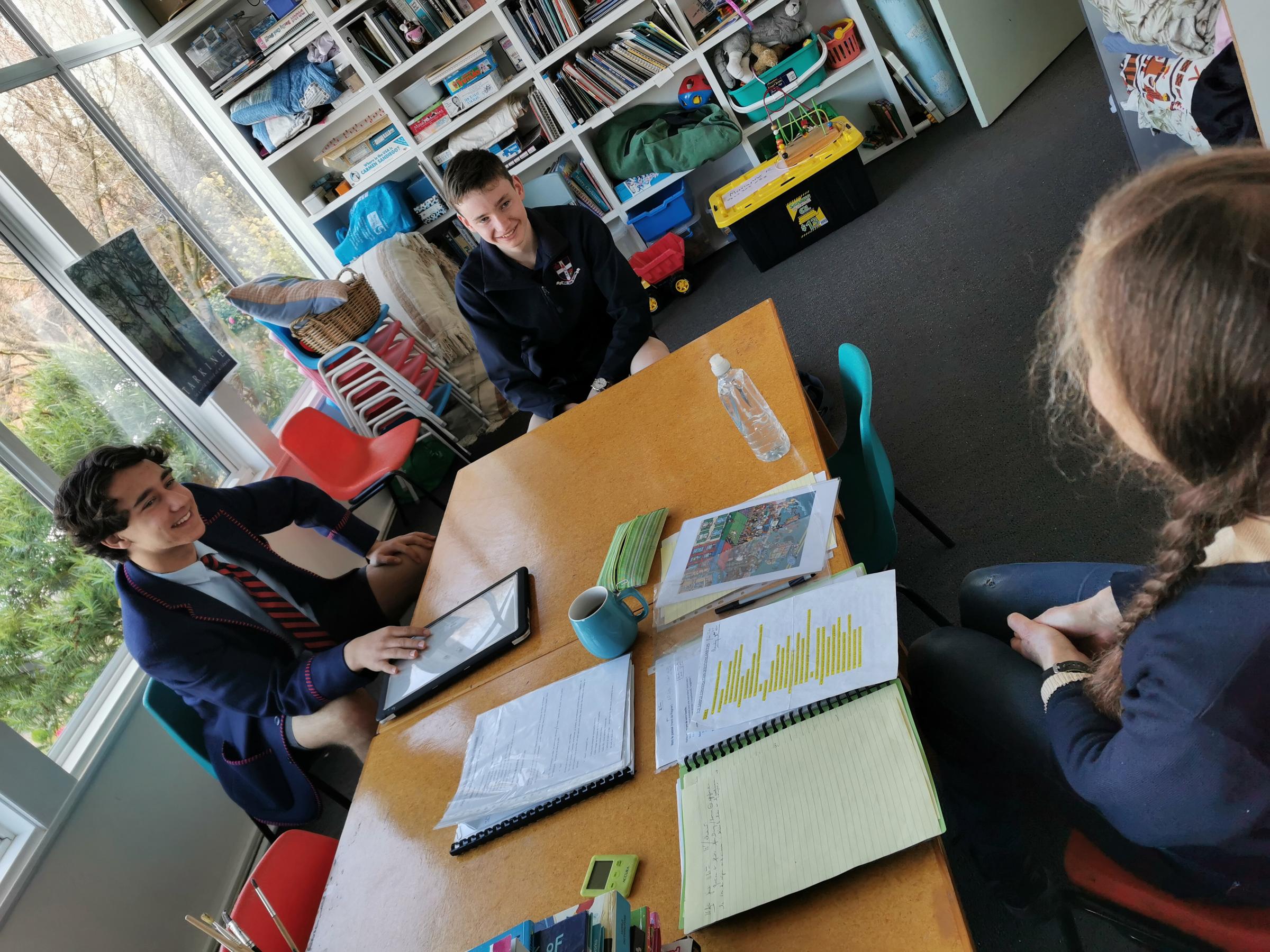TCE Languages Courses
This photo shows students in a native speaker session

TCE Languages Courses
This photo shows students in a native speaker session
There are many good reasons for learning to speak a second language:
The Languages Program at The Friends’ School allows students the choice of undertaking studies in Chinese, French, German and Japanese. This program is nurtured from the early stages of Year 7 through to the more challenging TCE and IB Diploma courses. Additional languages may also be offered to native speakers as part of the IB Diploma if there are sufficient numbers.
Students wishing to take up study in Chinese, French, German or Japanese at the TCE pre-tertiary level who did not complete the Year 10 program in the language, or students who wish to study two languages, or students who are interested in the School Supported Self Taught Languages program are advised to meet with the Head of Languages, or the IB coordinator, prior to making their subject choices.
Languages Bonus Scheme
The UTAS Languages Bonus Scheme encourages students to strengthen their preparation for undergraduate studies by undertaking language subjects. Students who have gained a Satisfactory Achievement (SA) in at least one (and up to three) language subject at a pre-tertiary level will be awarded bonus points toward their final ATAR score. This applies to all courses offered by the University of Tasmania (with the exception of MBBS, M3N and M3NC). A pre-tertiary result in two languages will receive four points and a student with a pre-tertiary result in one language will receive two additional points.
High Achievers Program (HAP)
Students achieving an Exceptional Achievement (EA) in two or more Level three TASC subjects in Year 11 are eligible to participate in the HAP whilst in Year 12. Units successfully completed may be credited to a relevant degree, when the student enrolls at the University of Tasmania. Credit provides two advantages: students have the option of accelerating through their degree, or they can take on additional subjects to extend their study program.